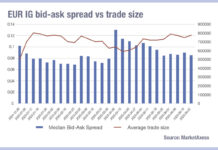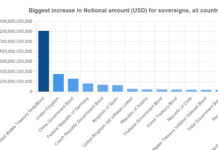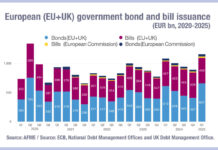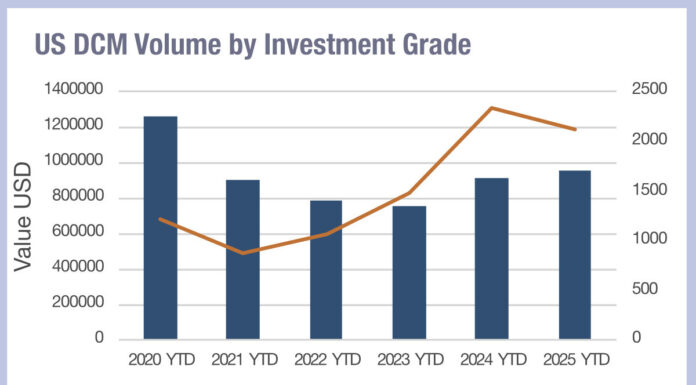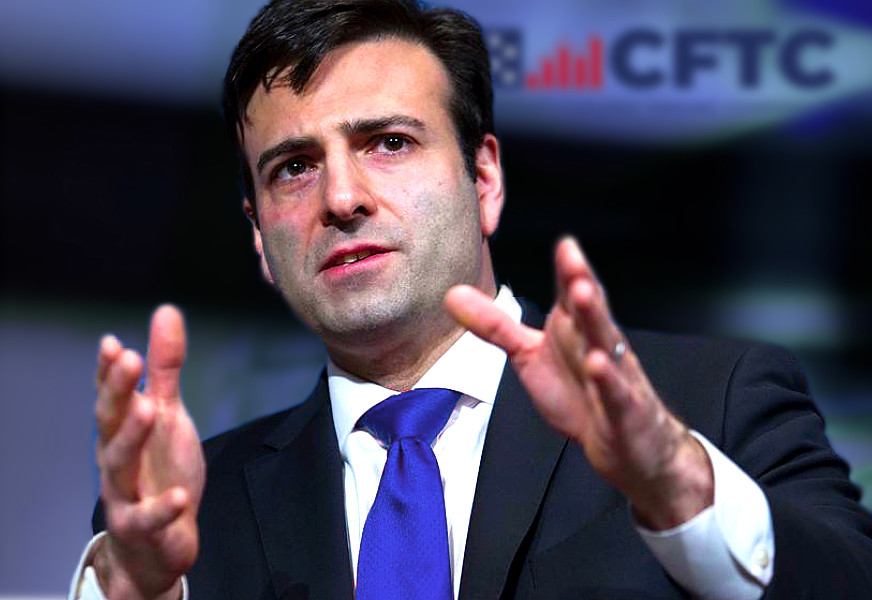
US market regulators the Securities and Exchange Commission (SEC) and Commodity Futures Trading Commission (CFTC) have fined JP Morgan over US$920 million in penalties and disgorgements for manipulative trading, or spoofing, in the US Treasuries, US Treasuries futures, and commodity markets, between 2009 and 2016. The CFTC noted that the bank also did not respond to warnings from the regulators or the CME and at points misled the investigation.
The bank’s behaviour during this period raises questions that neither the bank nor the regulators are prepared to answer, regarding its effect on market stability.
During the period in question, on 15 October 2014, the US Treasury market experienced a ‘flash crash’, which saw the 10-year treasury rate fall 34 basis points over a 10-minute period from 2.2% to 1.86%, a 52-week low, before rebounding for the end of day. Treasury futures volume reached nearly 1.6 million trades, an all-time record, having only broken the 800,000 trades a day barrier three times before.
A similar flash crash in the US equities markets in 2010 was attributed by the CFTC to manipulative trading by a lone trader on the CME via its E-mini S&P 500 futures.
When asked whether JP Morgan’s activity had been reviewed as a potential trigger of the 2014 flash crash, both the SEC and CFTC declined to comment. JP Morgan also declined to comment.
The press office of the CME, which is also the market for US Treasury futures, declined to comment on how JP Morgan had spoofed on its markets for eight years without being stopped.
The CFTC found that from at least 2008 through 2016, JP Morgan, “through numerous traders on its precious metals and Treasuries trading desks, including the heads of both desks, placed hundreds of thousands of orders to buy or sell certain gold, silver, platinum, palladium, Treasury note, and Treasury bond futures contracts with the intent to cancel those orders prior to execution.”
This intentionally sent false signals of supply or demand intended to deceive market participants into executing against other orders the traders wanted filled. According to the order, in many instances, JPM traders acted with the intent to manipulate market prices and ultimately did cause artificial prices.
The order also found that JP Morgan Securities (JPMS), a registered futures commission merchant, failed to identify, investigate, and stop the misconduct. The order states that despite numerous red flags, including internal surveillance alerts, inquiries from CME and the CFTC, and internal allegations of misconduct from a JPM trader, JPMS failed to provide supervision to its employees sufficient to enable JPMS to identify, adequately investigate, and put a stop to the misconduct.
The order notes that during the early stages of the Division of Enforcement’s investigation, JPM responded to certain information requests in a manner that resulted in the Division being misled. The order recognizes, however, JPM’s significant cooperation in the later stages of the investigation.
Regulators found that JP Morgan’s illegal trading significantly benefited the bank and harmed other market participants. It required the firm to pay a total of US$920.2 million – the largest amount of monetary relief ever imposed by the CFTC – including the highest restitution (US$311,737,008), disgorgement (US$172,034,790), and civil monetary penalty (US$436,431,811) amounts in any spoofing case.
JP Morgan Securities admitted the findings in the SEC’s order, and agreed to pay disgorgement of US$10 million and a civil penalty of US$25 million to settle the action.
“Spoofing is illegal – pure and simple,” said CFTC chairman Heath Tarbert. “This record-setting enforcement action demonstrates the CFTC’s commitment to being tough on those who intentionally break our rules, no matter who they are. Attempts to manipulate our markets won’t be tolerated. The CFTC will take all steps necessary to investigate and prosecute illegal activities that could ultimately undermine the integrity of the American free enterprise system.”
“The conduct of the individuals referenced in today’s resolutions is unacceptable and they are no longer with the firm,” said Daniel Pinto, co-President of JPMorgan Chase and CEO of the Corporate & Investment Bank, in a statement.
©Markets Media Europe 2025

